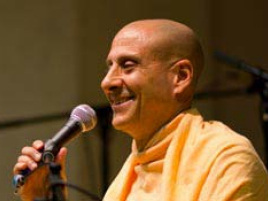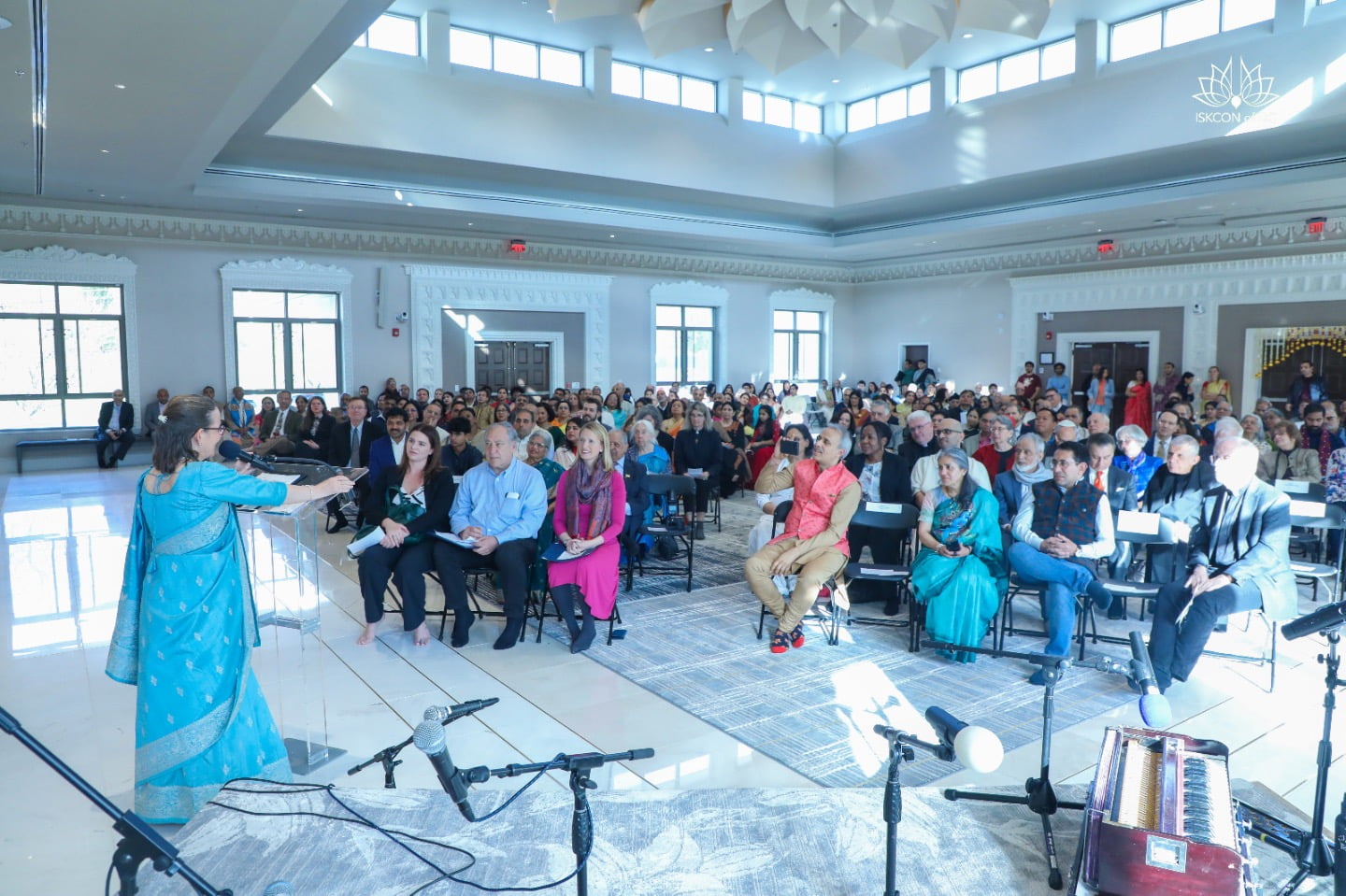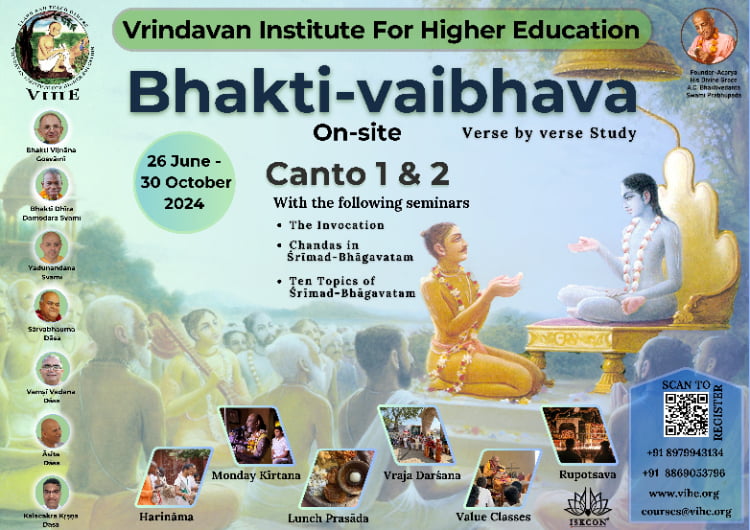Radhanath Swami at Harvard University
By Contributor | Jul 09, 2011

On June 20th 2011, a large group of students, researchers, professionals and enterpreneurs gathered at Harvard University to meet and hear from a renowned scholar & spiritual leader -Radhanath Swami. Recently formed university wide Harvard India Student Group arranged a talk on “Ethics in Leadership and Management” for aspiring leaders and managers in Kennedy School auditorium.The speaker using scientific, historical, economic, business, political, philosophical, academic and spiritual perspectives, and quoting great leaders and thinkers such as Albert Einstein, Martin Luther King, Mahatma Gandhi, and Mother Theresa, he discussed the foundation of effective leadership in the world today.
He began with a vivid, yet disturbing, life threatening Mumbai hit communal riot story. During the riot he experienced that sometimes people learn to hate before they learn to reason. Therefore he thought schools must educate the future leaders in this world about human values. His ashram began Value Education Programs in various schools of Mumbai. He created various programs to reach out to the children from government, private, and public schools to discuss the common thread and values that are at the heart of every great religion–to love god, to love each other and see every living entity with equal vision. A successful leader, irrespective of their field or title, must have this equal vision if they are going to lead with integrity.
Radhanath Swami told another great story from the conference, one that also exemplified the principle of leaders as servants, this one from the world of baseball. After a successful playing career for which he was inducted into the Baseball Hall of Fame, Joe Torre became a manager (coach) in Major League Baseball. Torre was asked what he considered to be his greatest accomplishment in life. His response was surprising. Torre explained that he was seriously abused as a child, and that the situation was so bad that just to escape from and forget his suffering, he threw every drop of his energy into baseball. In spite of all his success as a baseball player and manager, he said that his greatest accomplishment was starting an organization that helps children who are victims of abuse. The organization educates them, makes them feel valued, and teaches them the value of service to others.
While there is so much to learn from these successful leaders, Radhanath Swami pointed out that every one of us is a leader. The morals with which we mold our lives are going to affect so many people. Leading people by serving and caring for them is the most powerful, sustainable, and effective way of managing, because it builds trust. When people trust you, they commit themselves to you and your goals.Many of us lack a strong, internal foundation on which we can build our lives. If we build a strong moral foundation, then we can weather the inevitable storms that will challenge us over time. Just as a house with a weak foundation can be shattered in a storm, when challenges and disturbances come to us, our ethics, morals, and ideals will break down as we trade them in for our own selfish purposes. If we build a strong foundation within, however, we can remain steadfast and successful in our service to others.Swami quoted an aphorism that he heard from a saint “one’s greatness has to be estimated by one’s ability in tolerating the provoking situations”.
As he wrapped up his talk, Radhanath Swami reminded the MIT and Harvard students in the audience that they will soon be leaders in our society, and that they have the great gift of their education at their disposal. At the beginning of the talk, Radhanath Swami explained that the tools of this world are neutral. For example, a knife can be used to kill, or it can be used to perform surgery and save a life. It is the consciousness of the person using the knife that determines whether the result is good or bad. Similarly, science and technology can be sacred if they are used for a sacred purpose. Whether we view these tools as material or spiritual is a result of our consciousness.
In conclusion, Radhanath Swami said that if even one student can use his abilities & knowledge with dignity,integrity & spiritual values they will make a significant change in the world . The wonderful opportunities these universities provide can enable students to do incredible things. Whether they become engineers or artists, or CEOs or politicians, if they lead with compassion, they will become agents of change, instruments of grace, and embody the qualities of a true leader.











